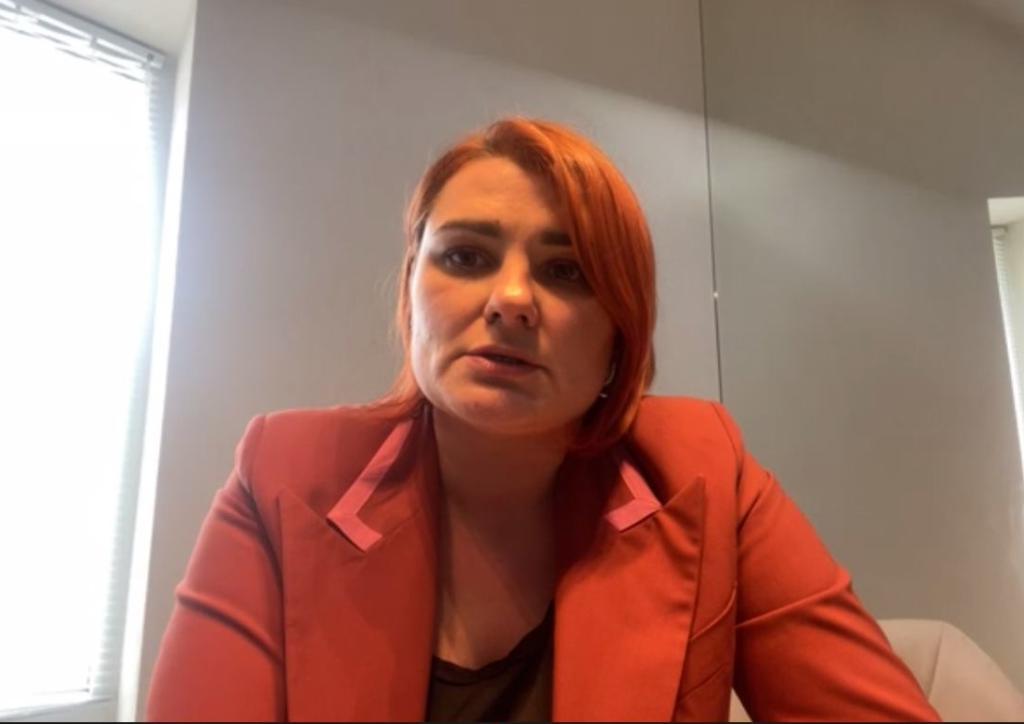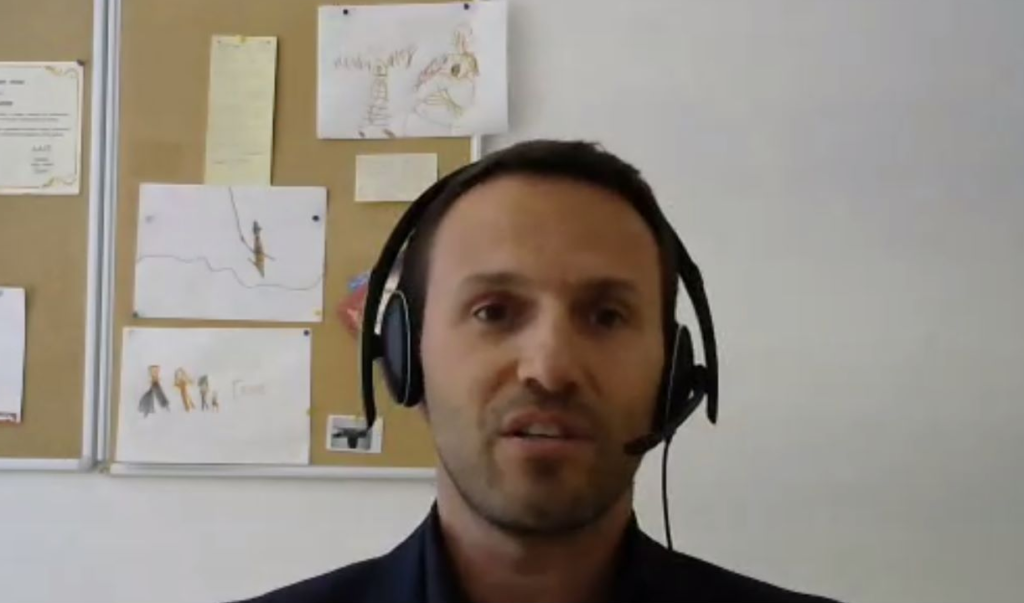On May 26, together with European experts and with the participation of the USAID Energy Security Project, members of the Verkhovna Rada Committee on Energy, Housing and Communal Services held a roundtable to discuss the principles of legislative integrity and energy market transparency. During the discussion, participants focused on the principles and approaches set out in European Union (EU) Regulation No. 1227/2011 on wholesale energy market integrity and transparency (REMIT) and other parts of the EU acquis. Experts from the EU and the United States Agency for International Development (USAID) also analyzed bills aimed at implementing REMIT in Ukraine to ensure market-compatible monitoring and supervision, which is an important step in the development of Ukrainian energy markets.

Andriy Gerus, Chairman of the Verkhovna Rada Committee on Energy, Housing and Communal Services, noted that there are often large players that can significantly affect the energy market, and that ensuring fair competition is necessary to build trust. In addition, introducing REMIT in Ukraine is also relevant to the country’s difficulties interacting with the European energy market.

Torsten Woellert, Team Leader for Energy and Environment of the Support Group for Ukraine at the European Commission (SGUA), shared a similar view. He observed that the market Ukraine is currently developing should one day be merged with the EU market. Therefore, it is important that the rules of cooperation are based on common principles.
Although in many countries, regulators implement REMIT without additional legislative changes, Director of the Energy Community Secretariat Janez Kopac advises Ukraine to develop and implement legislation that will create the basis for proper market functioning. For many years, the most developed competitive markets have had rules that ensure proper market surveillance and prevent abusive market practices that harm transparency and competition. In the EU, such rules are supplied by REMIT, which aims to ensure confidence in wholesale energy markets.

According to USAID Senior Energy Advisor Sukru Bogut, Ukraine should follow a similar path, as it will prepare the country to integrate with the European energy market and network operators.
Olga Babiy, a member of the National Energy and Utilities Regulatory Commission (NEURC), also stressed the importance of developing high-quality legislation. According to Ms. Babiy, implementing REMIT will lead to more complete market information, which will facilitate prompt responses and decision-making. She also pointed out that the draft law is one part of REMIT implementation and must be supplemented by secondary regulations that define the procedures for applying REMIT in practice; this is one of the NEURC’s tasks.
The current REMIT model in the EU involves the Agency for the Cooperation of Energy Regulators (ACER), which collects information from market participants, analyzes the data, and then issues instructions. According to Ms. Babiy, the NEURC has already developed a roadmap for REMIT implementation, which will take six to nine months. The next steps should be developing an IT solution to support REMIT, collecting information from participants, and market participants creating their own platforms to transmit information. She also noted that these proposals have already been sent to the Energy Community for an independent compliance assessment.

MP Liudmyla Buimister added that REMIT is a key regulation for Ukraine, not only in light of the Association Agreement with the EU, but also because it will be very difficult for the regulator to apply REMIT provisions through secondary legislation. Therefore, it is necessary to pass the law.
Analyzing the legislation needed to implement REMIT, USAID ESP Energy Markets Institutional and Regulatory Advisor Alex Golas said that the bill’s main goal should be to increase market integrity and transparency, because both the electricity and gas markets in Ukraine are currently subject to manipulation. He also pointed out that the market liquidity postulated by one of the draft bills cannot be established artificially through government interventions, but must come from a growing number of investors, participants, and traders who enter the market and bring liquidity with the resources that they introduce to the market. In order for this to occur, the only necessary government intervention is to create transparent and clear conditions for market activities.
Mr. Golas noted that bills No. 4503 and No. 5322-1 primarily focus on other aspects nurturing the energy sector in Ukraine, with the partial implementation of REMIT only a secondary aim. Among other issues, they contribute to implementing an “adapted” version of REMIT.
For example, these bills fail to include energy market participants’ obligation to provide information to the regulator, as required by Article 8 of Regulation (EU) No. 1227/2011. They also do not provide for the creation of an insider information platform or set requirements for the disclosure of insider information.
Of all the bills under consideration, draft law No. 5322 transposes the most provisions of REMIT into Ukrainian legislation, as it includes (among others) the following:
- Market participants are obliged to provide information on transactions to NEURC.
- Insider information regarding related parties shall be disclosed.
- The bill contains a non-exhaustive list of types of manipulation.
Mr. Golas also emphasized that, regardless of the content ultimately adopted in the bill, USAID ESP can help government agencies and companies (NEURC, the market operator, and the transmission system operator) respond to organizational and IT infrastructure challenges, namely through:
- Assistance developing secondary legislation and system requirements,
- Assistance with IT infrastructure solutions (hardware and software for the NEURC and operators),
- Training and capacity-building, and
- Establishing cooperation with international bodies.
Regarding the REMIT model for Ukraine, the European experts advised focusing on integration with the EU energy market, which is an important part of the government’s goal to integrate with the European Network of Transmission System Operators for Electricity (ENTSO-E) by 2023.

Arben Kllokoqi, an electricity expert with the Energy Community Secretariat, added that it is also important for the process to have a strong, independent, and competent regulator. In Europe, REMIT serves to prevent market abuses, such as insider trading and market manipulation. In parallel, there has been an increase in regulators’ powers to investigate and take action. Mr. Kllokoqi noted that REMIT will produce these benefits only if the regulator builds its capacity and applies it to implementation. At the same time, he recommended instituting high fines, which should play a dual role: to compensate for damage and to deter any future abuses. Mr. Kllokoqi believes that adopting bill No. 5322 will contribute to this outcome.
Leo Lehr, economic and legal expert for energy markets at the Department of Competition and Regulation at Austria’s E-Control, concurred with Mr. Kllokoqi’s opinion. He is convinced that the legislation should address two goals—transparency (mandate disclosure of information, stimulate the creation of a liquid and efficient market, empower the regulator to eliminate risks) and integrity (establish and monitor centralized bans on improper practices, set fair market prices, prevent price interference). He also underlined the importance of having a capable regulator, isolated from current business and political interests, impartially carrying out its surveillance duties. Together, these should lead to economic benefits: stable prices for market participants and stronger national energy market platforms.
MP Gerus highlighted the importance of competition, integrity, and transparency in the markets and the creation of fair rules that allow all participants to enter the market and compete freely. At the end of the process, every energy customer will benefit from this environment, because it will introduce optimal prices that satisfy both investors (market participants) and consumers. The MP concurred that for the rules to be effective, there must be a strong and independent regulator in Ukraine.
